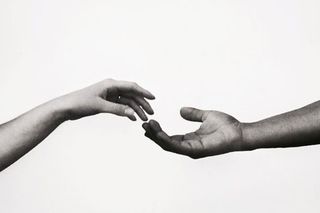
What Is the Right Amount of Expectations from a Romantic Partner?
While the soulmate myth explains excessive expectations, low self-esteem may be behind having too few.

Belgian psychotherapist Esther Perel, in a TED talk, discusses the nature of love and desire in committed relationships. In it, she suggests that modern love, as we know it, forces us to put too much pressure, have too many expectations, seek happiness from our partners.
But how many expectations are one too many in a relationship? Turns out, there have been attempts to quantify it.
In 2014, psychologist Sivan George-Levi, along with a team of researchers, attempted to quantify ‘relationship entitlement’ and study how the expectations we have of our relationships contribute to our satisfaction and our partners’. The scale they developed was divided into four subscales:
- Excessive entitlement or people behaving as though their partner always owes them the very best;
- Entitlement expectations or people having expectations which control their partners’ behavior toward them;
- Restrictive entitlement or people believing their partner deserves much better than they do; and,
- Assertive entitlement or people standing up for their rights in a relationship in a healthy way.
The researchers also developed a survey consisting of statements about expectations and behavior in relationships; takers rate one (false) to five (true) each statement for how accurately it describes them.
According to George-Levi and his team, falling in the fourth category — having an assertive sense of entitlement in a relationship — is the ideal bracket to fall into. “Although [assertive entitlement] may seem similar to … excessive entitlement, George-Levi and coauthors maintain that there’s something healthy about being able to stand up for your rights in a relationship. If you don’t, you might become one of the restricted entitlement group at the opposite end of the scale, who cannot make their needs known to their partners,” according to a report on the study in Psychology Today.
The difference between those falling in the ‘excessive entitlement’ category and those falling in the ‘assertive entitlement’ category is the latter adopt a healthy way to communicate (as opposed to expecting the other person to mind-read) reasonable expectations and standards of behavior to one’s partner. This not only increases the chances expectations will be met, also directly correlates to the partner’s satisfaction levels because they see it as a sign of investment in the relationship.
By contrast, expecting that the other person will simply understand and just know what we want in a relationship is a type of unhealthy communication strategy which rests on the idea of “if the person is the right person, they would just get it.”
But unfortunately, the idea of the ‘right one,’ or ‘soulmate,’ is a Greek myth, which capitalism has exaggerated and stuffed into every last drop of pop culture. In The Symposium, Plato has Aristophanes present a story: At the beginning of time, there were three kinds of humans: the man, the woman, and the androgyne. Each had one head, two faces, four arms and legs, and two sets of genitalia. With twice as much power and speed, they rolled across Earth, until one day, they made the blustering mistake of climbing Mount Olympus to attack the Gods.
Zeus, the King of Gods, devised a way to put them in place to make them only half as fast and half as strong. He cut the man-man, woman-woman, and man-woman creatures in half, destined to forever roam the Earth anxiously, looking for their other half.
Aristophanes says: “[…] And so, when a person meets the half that is his very own, whatever his orientation…then something wonderful happens: the two are struck from their senses by love, by a sense of belonging to one another, and by desire, and they don’t want to be separated from one another, not even for a moment.”
This classical idea of romantic love — humans’ pursuit of wholeness, for their desire to be complete upon finding their ‘soulmate’ — remained restricted to the realm of philosophy and ancient Greek literature for the longest time, with marriage and relationships being more of a social and economic contract between two people than about love. But in the past few decades, there has been a shift in the way people view relationships.
Related on The Swaddle:
The Psychology Behind How We Fool Ourselves About Those We Love
Perel, also a relationship and marriage counselor, explains in her blog, that as communal institutions are giving way to a highly individualistic, modern society, people are slowly going back to the Greek ideal of a soulmate. We are turning to one person with the expectation that they satisfy all our needs and provide all the resources that once entire villages or communities would provide. She says in her TED talk: “Marriage was an economic institution in which you were given a partnership for life in terms of children and social status, and succession, and companionship. But now, we want our partner to still give us these things but in addition ‘I want you to be my best friend, and my trusted confidant and my passionate lover to boot.’”
“So we come to one person, and we basically are asking them to give us what once an entire village used to provide. Give me belonging, give me identity, give me continuity, but give me transcendence and mystery and all in one. Give me comfort. Give me edge. Give me novelty. Give me familiarity. Give me predictability. Give me surprise. And we think it’s a given, and toys and lingerie are going to save us with that.”
When you add to these expectations the commercialization of love through Valentines’ Day, depicted in endless movies, songs, and literature, and the advent of dating technology, we are left perpetually searching for the “right match” who will “just know” exactly what we want: the very best, all the time. And when that doesn’t happen — because these expectations are fundamentally unrealistic — we swipe right on the next picture and repeat the same patterns of expectation and disappointment. Perel offers an alternative way of thinking of love: “There is never ‘the one.’ There is one that you choose and with whom you decide that you want to build something. But in my opinion, there could also have been others.”
Pallavi Prasad is The Swaddle's Features Editor. When she isn't fighting for gender justice and being righteous, you can find her dabbling in street and sports photography, reading philosophy, drowning in green tea, and procrastinating on doing the dishes.
Related


Salvaging the Michael Jackson Soundtrack of My Youth From the Predator Who Sang It
